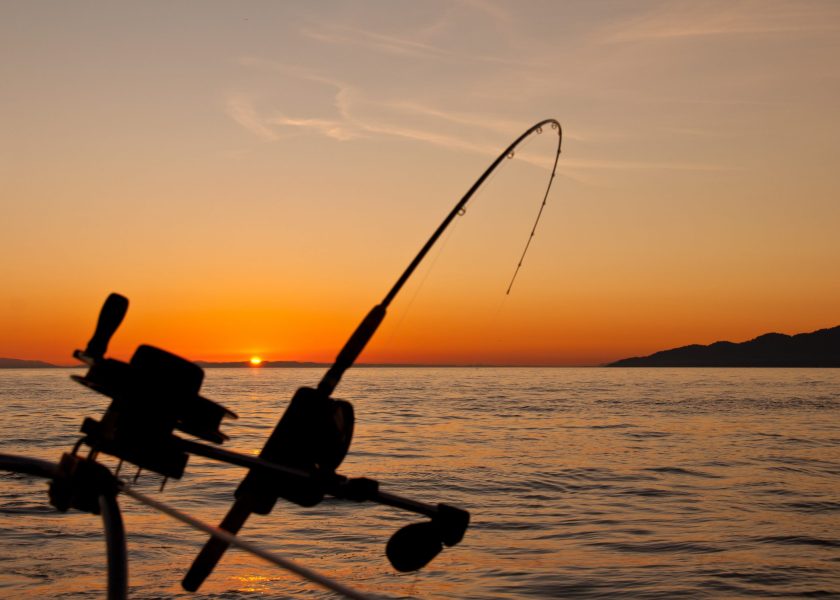As an Amazon Associate, I earn from qualifying purchases. This means I may earn a small commission if you use my affiliate links, but there's no extra cost for you!
While you may have taken the time to find the best fishing spots, and feel as though your experience means that you are prepared for anything that comes your way – from time to time, accidents do happen. For example, you may be fishing with kids who are a little less cautious around water than they should be you may get injured as a result of someone else’s actions. When this happens, it’s important that you know exactly what to do moving forward – and that’s where this guide comes in.
 Photo by James Wheeler on Unsplash
Photo by James Wheeler on Unsplash
Know the most common causes of accidents ahead of time
While this step may seem a little fruitless if you’re already injured, knowing the most common injuries that people deal with when fishing ahead of time allows you to put the proper precautions in place to keep yourself and others safe. In regards to fishing, the most common injuries are:
- Injuries sustained from tripping/falling such as broken bones, fractures, concussions, or dislocations.
- Injuries sustained from not using equipment correctly, typically resulting in cuts, scrapes, and bruises.
- Sprains.
- Strained muscles and other injuries that can be attributed to ‘overuse’.
By being aware of these injuries (and their prevalence), you’ll be able to change your fishing habits slightly to reduce the chances of these accidents occurring. For example, many falling/tripping injuries can be prevented by simply being a little more cautious and aware of your surroundings. For example, you should keep an eye out for any tripping hazards, such as discarded fishing equipment or slippery surfaces. You should also ensure that you wear the appropriate shoes – such as those that are both waterproof and feature a strong grip to help you remain on even footing.
Don’t panic
Whether you’re dealing with a minor injury or have broken a bone, it’s only natural to feel a little panicky. However, if you allow yourself to become overwhelmed, you’ll only be causing more issues further down the line – and you could be landing yourself in more danger, especially if you’re in open waters. This is particularly important if you are with kids, who will look to you for guidance and may already be dealing with anxiety.
Instead, take a deep breath and think logically about your next step. For example, if you’re fishing in open waters, it’s time to turn back to land so that you are able to get any medical attention you may need. In the meantime, you may be able to make use of your fishing first aid kit, which should be with you at all times. If you’re alone, you should also ensure that you reach out to one of your emergency contacts, especially if you require further assistance.
Get additional help
Once you’ve received medical treatment for your injuries, you might also want to consider any additional help or support that is available to you. For example, if you have broken a bone, you might want to look into local physiotherapy services that can help make your recovery as smooth and stress-free as possible. Alternatively, if the accident was not your fault and was caused by some form of negligence (i.e, damaged or faulty equipment, another fisherman), you may be eligible to receive some form of compensation and, as such, should reach out to a personal injury attorney. This is particularly important if you are dealing with a loss of finances due to your injuries. For example, you may have to take time off work in order to properly recover from your accidents.
Take time to recover
While you may be keen to return to fishing as soon as possible, it’s important that you do not do so before you are ready. This is due to the fact that, in some cases, you can make your injuries worse by returning to the boat before your body has been given the time it needs to recover. For example, while a sprain injury may not feel so painful after a few days, you could increase the severity of this sprain pretty easily.
If this accident has left you feeling a little shaken up and nervous, then it’s also important that you also give yourself some time to resolve these feelings before you get back to fishing. This is due to the fact that fishing, particularly in large bodies of water, requires both confidence and focus.
If you’re already itching to get back out there again, try to find other ways to satisfy your interests. For example, you could catch up on your favourite fishing show or podcast, or do some research on cool places in your area to fish. This way, you have something exciting to look forward to!
Collaborative post
Amazon and the Amazon logo are trademarks of Amazon.com, Inc, or its affiliates.

